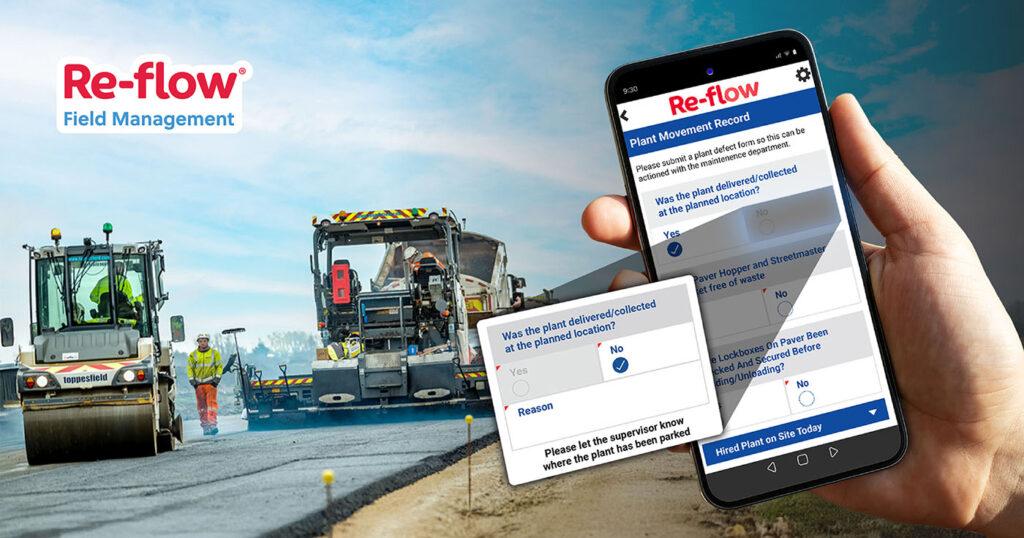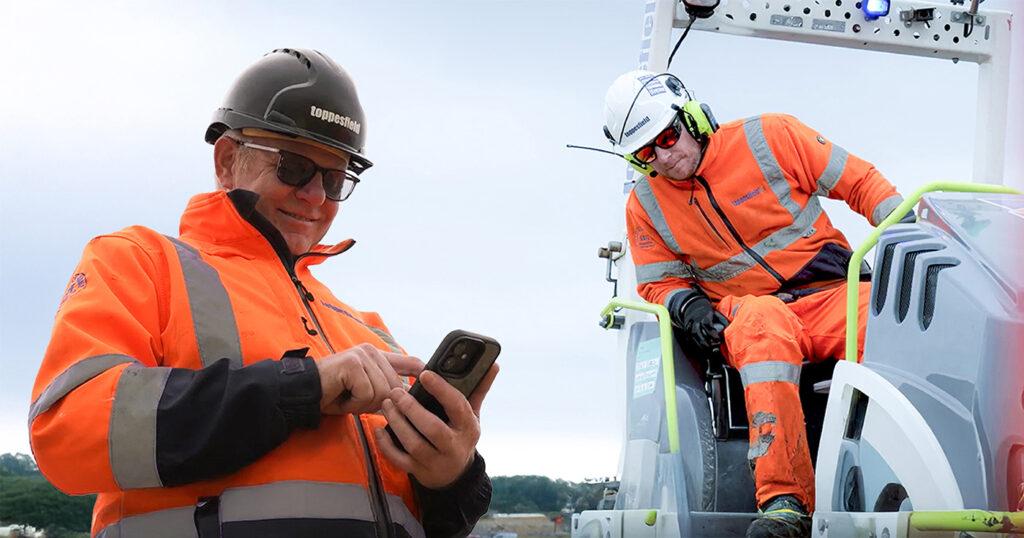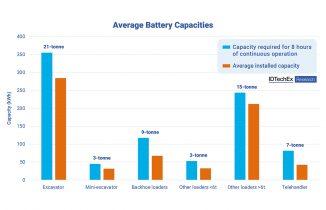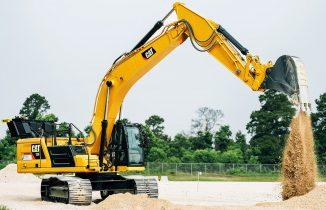
Site forms often ask questions that don’t apply to the task at hand. For infrastructure businesses working on complex projects – from civil engineering teams installing kilometres of pipeline for wind turbines, to surfacing firms laying recycled asphalt on the busiest motorways in the country – this can slow down work and create confusion.
With so many variables to these projects – items of plant, operative numbers, qualification needs on site, materials delivery – digital software should ideally help by stripping out complication, capturing the exact data required, and honing the attention of supervisors and contracts managers on the work that needs to be done – and nothing more.
But that’s not always the case…sometimes management of field teams can become overly complicated.

The solution for capturing focused site data
Having moved their forms onto Re-flow, Toppesfield were already pleased with the impact of their digital daily order forms. They’d eliminated a manual order process involving spreadsheets, texts, emails, and phone calls, and guaranteed that their sites – 30 spread-out gangs – would have all the materials and staffing necessary to be stress-free every day. There’d be no risk of errors or delays, and the company’s already excellent reputation would be strengthened even more.
But projects don’t work from a template. There came the requirement to capture more data from their forms.
For example, they wanted to add additional fields that dealt with the delivery of plant to site – fields to confirm turning room for articulated lorries to deliver multiple pieces of plant, or to note low bridges.
To address this, they either had to make a whole new form specifically for those sites – and more forms on top of that for similar variables – risking the kind of ‘scope creep’ that goes against best practice. Or otherwise, they had to add extra fields to existing forms. Either option risked complicating their operations – the opposite of streamlining.

Conditional logic – simple to implement but with a big impact
One way or another in a rigid system, supervisors would have been forced to fill out those extra questions every single day on every form, ultimately cluttering the data, wasting time in the office, and increasing the risk of error.
The negative impact of this can build and make a real difference over time: Toppesfield might send over 2000 forms in a week, so flexibility is the key.
By building the forms on Re-flow, Toppesfield were able to add conditional fields. So, when someone fills out the form, certain questions only appear when they’re relevant.
The form asks, ‘Is it necessary to deliver plant to the site?’ If the answer is ‘Yes,’ half a dozen relevant questions open up. If the answer is ‘No,’ they never appear.
This keeps the process light and natural for supervisors and everyone on site, while giving managers the precision they need. It means forms behave intelligently – adapting in real time to each job, rather than asking users to work around them. Over time, these small efficiencies accumulate into a major operational gain: less time wasted, fewer errors, and cleaner data flowing back to management.
By using Re-flow’s conditional logic, Toppesfield save site supervisors up to one hour every day – time that would otherwise be spent navigating irrelevant form fields can be spent doing the work instead.
And for the logistics team managing these daily order forms, who spend their workday making sure everything is planned for the next day’s jobs – that everything is ordered and all the people are in the right place – clarity of information is ultimately essential.





